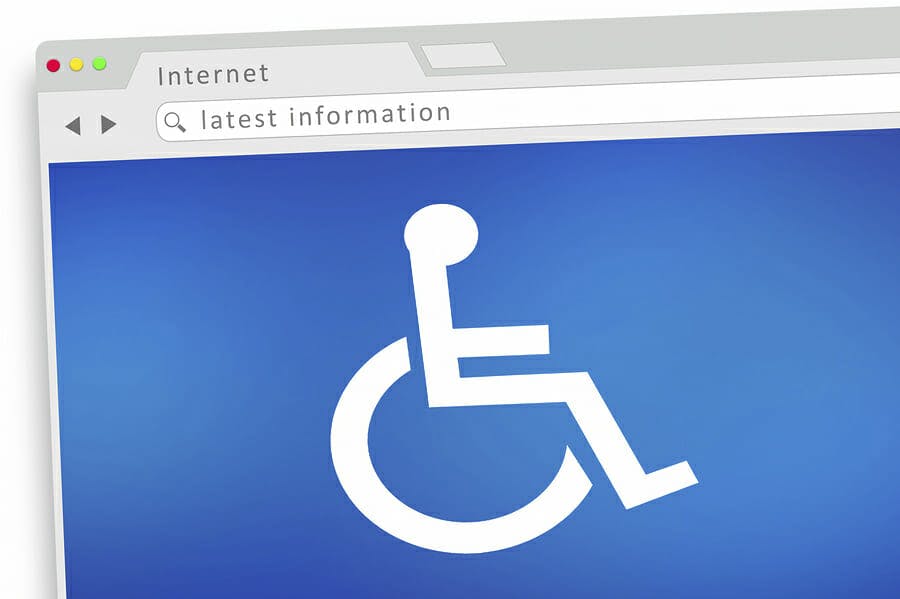Physical therapists understand the importance of creating an accessible environment better than most professionals. Working with people who are injured or struggling with pain often involves meeting them on their level, and the same is true for creating a space that’s welcoming for people with physical disabilities.
When it comes to creating accessible spaces, we usually think first about entryways, bathrooms, and other concrete obstacles that may present challenges for those with limited function or mobility. Tackling these areas is essential, but it’s also important to ask yourself whether or not your website is as welcoming as it could be.
Does the Americans with Disabilities Act Apply to PT Website Design & Development?

When the Americans with Disabilities Act (ADA) was passed in 1990, the idea that being able to use a business’s website would be essential to engaging with their business didn’t exist. As such, the bill has few guidelines for accessible website design. In the 30 years since, though, online commerce and interaction has become a much more integral part of our lives.
This year, the idea that a website is an essential part of a business was debated on the floor of the Supreme Court. Early in October, 2019, the Supreme Court upheld the right of blind people to sue Domino’s for failing to make their website and app accessible.
According to the LA Times, the court’s decision was based on the idea that the ADA “protects access not just to restaurants and stores but also to the websites and apps of those businesses.” The ruling doesn’t mean the plaintiffs will win their suit; it simply means they have a right to bring it. Legal precedence on the matter is still far from established, but that won’t stop lawyers from finding as many businesses as possible to bring suits against.
E-rehab has accessibility tools for your website that might help you to avoid the hassle of a lawsuit.
Contact Us today at (760) 585-9097 or request a free consultation by clicking here.
To learn more about accessible digital design, visit W3.org/standards/webdesign/accessibility.


Leave a Reply
You must be logged in to post a comment.